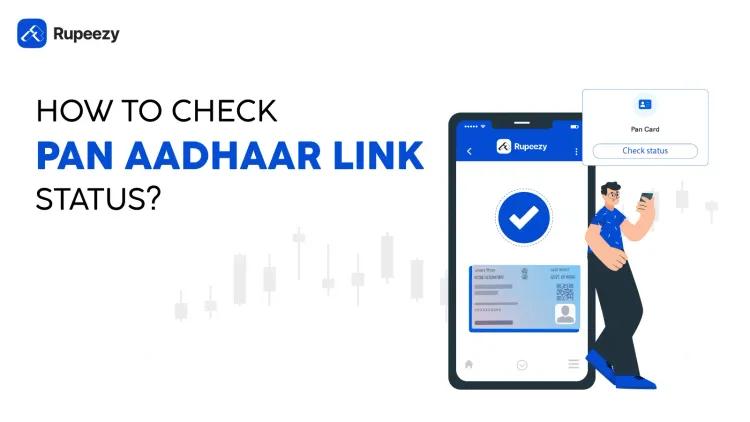Economics: Scarcity, Micro Economics, and Macro Economics


00:00 / 00:00
What is Economics?
It might be easier to explain what economics isn’t.
Economics is not the study of money or getting rich. Economics is not the study of the stock market.
Economics is not about men in suits and bow-ties predicting what will happen in a given market or the overall economy. A few economists do that, but that’s not the main focus.
Economics should be understood as Alfred Marshall once said:
‘A study of man in the ordinary business of life.’
It inquires how he earns a living and how he uses it. Thus, it is on the one side, the study of wealth, and on the other and more important side, a study of man.
Now let’s talk about what else economics is.
Economics is a 24 year old deciding whether to work, or to do an MBA, and how the decision will affect his future income.
Economics is an electronics company deciding whether to produce phones or laptops and how that’s influenced by what we, the consumers, want to buy.
Economics is the government deciding whether to increase its spending when there’s a recession and if it’s worth going into debt.
Economics is in our everyday life, our kitchens. We reduced our tomato consumption when recently the tomato price skyrocketed to Rs 130/Kg.
Understanding economics can forever change the way you think and problem-solve. Using these blogs, I will discuss concepts that will help you understand the world, and hopefully make it a better place. For those interested in delving into various aspects of personal finance, explore our comprehensive overview of types of financial planning.
No matter who you are, you will be using economics in every area of your life.
In fact, you are using economics right now, you made a choice to read this article, which means you decided subconsciously that the benefit outweighs the cost.
Opportunity Cost
Wait, what cost?
Well, you could be watching videos of cats and dogs, or scrolling through instagram, or watching a movie on Netflix!
The cost of reading this blog is the video that you’re not watching, the value of the next best alternative.
This is called opportunity cost. If you’re still reading this blog, it means that you believe it’s the best use of your time, or you wouldn’t be reading it.
For example, when you spend time and money going for a movie on the weekend, you cannot spend that time at home reading a book, and you can’t spend the money on something else.
If your next-best alternative to watching the movie is reading the book, then the opportunity cost of watching the movie is the money spent plus the pleasure you forgo by not reading the book.!
Understand that we just covered the two most important assumptions in all of economics.
Scarcity
First, the idea of scarcity. People have unlimited wants but limited resources, and second, everything, and I mean everything, has a cost.
If these assumptions are true, then we need a way to analyse our choices and get the most pleasure/utility from our limited resources.
And that’s economics.
About 1,50,000 people a year die in car accidents in India. Is there a way to ensure there will never be another traffic fatality?
Yes! We can crush all the cars, close all the roads, and force everyone to walk. That would solve the car crash problem.
Do you want to decrease the number of people convicted of theft?
You could decriminalize it.
You want to decrease carbon production?
You can shut down all manufacturing units.
But before we act on this, think about it for a second. Each of these solutions are absurd because the cost clearly outweighs the benefit.
Traffic fatalities are tragic, but we don’t prevent them at all costs. You know that driving has risks, that you might get in a car accident, but you still drive.
Why?
Well first, who’s gonna walk to the office or gym? And walk home with groceries when it’s raining?
All of this is worse than the faint chance of getting seriously injured in a car crash.
The point is, individuals, businesses, and countries cannot have everything, so they’re forced to weigh the benefits and costs of their decisions and make choices.
Let’s look at another example. Military spending in the United States is over 870 billion USD per year, that’s close to what the next top ten countries spend, combined.
There are a total of about 20 active aircraft carriers in the world, and the US has half of them and it’s building more.
The opportunity cost of those aircraft carriers could be new hospitals, schools, and roads. So, is the US spending too much on the military?
Should the US focus on making guns or butter? That is, weapons or consumer goods?
And notice the key word here is “OR,” The United States can’t produce an infinite amount of weapons AND consumer goods because they don’t have an infinite amount of workers and farms and factories and raw materials. Scarcity means we must make a choice.
The American president Dwight D. Eisenhower explained this best in 1953 in a speech about Cold War military buildup.
“Every gun that is made, every warship launched, every rocket fired signifies, in the final
sense, a theft from those who hunger and are not fed, those who are cold and are not clothed.
This world in arms is not spending money alone. It is spending the sweat of its laborers,
the genius of its scientists, the hopes of its children.”
And this is a good time to mention the role of politics in economics; I am not pushing
some liberal anti-military policy here. I am just pointing out that military spending has
an opportunity cost: The resources not being used for social services like feeding the hungry, treating the ill, and educating the children.
Incentives
Let’s talk about incentives. Having the right incentive is key to any economic policy.
But the right incentives can be hard to figure out. Take for example, public colleges and universities. Let’s say the government announces financial incentives for universities to enroll more students.
The govt’s objective is to increase the number of young people pursuing university & higher education.
At first, offering financial incentives to universities seems like a simple powerful strategy. But it will not go as planned.
This financial incentive would mean that the universities will focus on recruiting as many students as possible. Only Recruiting. They don’t have any incentive to provide quality education when they are in class.
Work around for this situation?
The Govt. can offer incentives for each student that completes education and gets a degree. This seems ok, right? In some places this might work;
it can help schools increase their graduation rates by shifting money from marketing budgets to programs to help students do better.
But these incentives can also backfire if they’re poorly designed.
A university that gets money for the number of graduates, could push students through the program without giving them a good education or it might want to only admit students who come in with super high test scores.
Instead of considering other factors that might make them good candidates. It might push students into less-rigorous majors too.
But incentives can help solve problems without adding more resources. You just have to get the incentives right. If you mess up the incentives, the policy is not going to work.
The British government before India’s Independence was concerned about the number of venomous cobras in Delhi and they offered a bounty or an incentive for every dead cobra.
Initially, this was a successful strategy; large numbers of snakes were killed for the reward.
Eventually, the plan backfired, enterprising people began to breed cobras for the income. When the government became aware of this, the reward program was scrapped.
This is an example of Perverse Incentive.
We’ll talk more about this idea of perverse incentives later.
What’s the difference between Macroeconomics and Microeconomics?
Macroecnomics studies the economy as a whole; it looks at the whole nation’s output, unemployment, interest rates, government spending, and growth. Macro answers questions like:
“Will unemployment rise if there’s an increase in taxes?”
“Will an increase in the money supply boost output, or just increase inflation?”
“Will a slump in the US economy cause the Indian economy to slow down?”
Macroeconomists get more airtime because they predict the direction of the overall economy, and work with the media and businesses and governments and the Central Bank.
But not all economists are macro economists; there’s a whole other side of economics that looks at different questions.
“How many workers should we hire to maximize profit?
“If our competitor releases their product in April, when is the best time to release our product?”
“Which is better for fighting climate change, an emission tax, or increase in fuel efficiency?”
These are all microeconomic questions. They’re not about predicting GDP or measuring unemployment, but they are crucial questions that economists must answer.
Also, if you don’t know what GDP is, or what a high or low unemployment rate is, don’t worry, we’ll get there.
So macro and micro-economists are two different groups asking different questions under one academic umbrella.
Now obviously we’re glossing over the details, but I will try to cover everything in the upcoming blogs from supply and demand to monetary policy.
I can’t promise you that learning economics will make you wealthy, but I can promise that learning economics will enlighten your mind and make you a more informed decision maker. And that makes us all better off.
If you have made it till this far, and enjoyed reading this piece, give yourself a little pat on the back. You now know a little about economics.
Please share this with your friends who you think might get a kick out of this. In the next blog we will discuss Trade & Specialization. Don’t worry, I will make it interesting ????
Cheers,
I will see you in the next blog.
The content on this blog is for educational purposes only and should not be considered investment advice. While we strive for accuracy, some information may contain errors or delays in updates.
Mentions of stocks or investment products are solely for informational purposes and do not constitute recommendations. Investors should conduct their own research before making any decisions.
Investing in financial markets are subject to market risks, and past performance does not guarantee future results. It is advisable to consult a qualified financial professional, review official documents, and verify information independently before making investment decisions.

All Category










